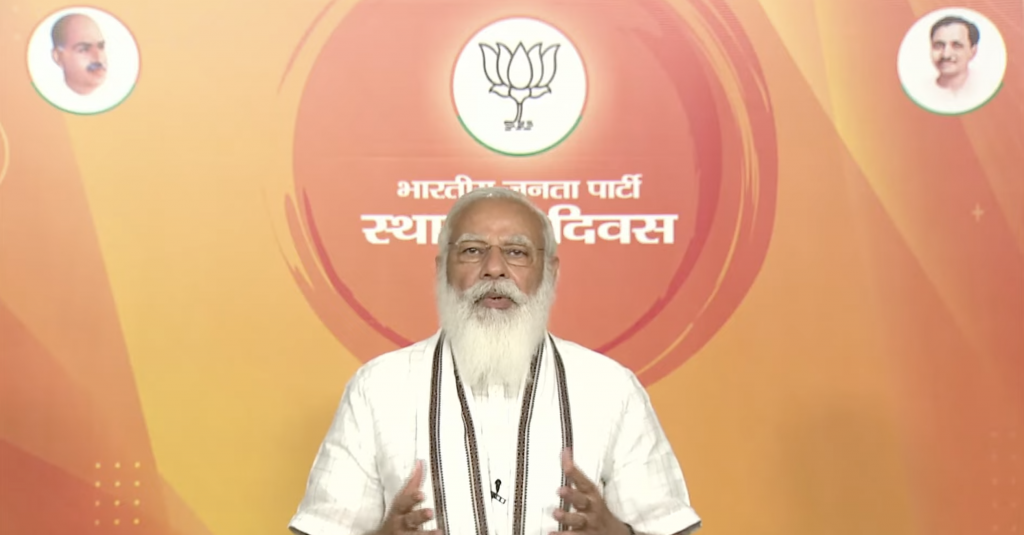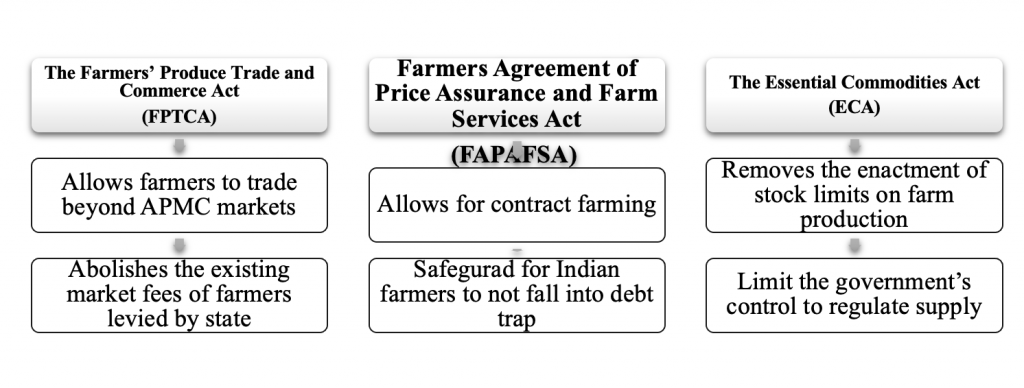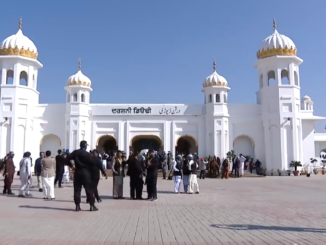
Karl Polanyi in his book, ‘The Great Transformation’ wrote: When the unregulated expansion of the market conflicts with the self-protection of society, it may end up in a reactionary political movement.
The government, led by the Hindu nationalist Bharatiya Janata Party (BJP) and Prime Minister Narendra Modi passed three farm reform bills based on their neo-liberal agenda that prompted farmers from the Northern Indian states mainly Punjab and Haryana- to protest outside the capital New Delhi. The farmers’ largest protest draws attention to the Modi governments’ hasty and undemocratic manner policy in which they passed the three agricultural laws without any discussion with the farmers and a parliamentary debate. These laws limit the government intervention over the agricultural trade to benefit the farmer with an increased number of buyers, leading to more favorable prices for their purchase and greater corporate control. According to the Modi government, these three laws limit the state intervention for restraining the imprudent stocking of food commodities.
The three farm laws- FPTCA, ECA, and FAPAFSA- creates a new national framework that removes the obligation of stock limits on farm production, allows for contract farming and trade outside the government-operated markets. However, the farmers protested due to the lack of support for the MSP (Minimum Support Price) – the guaranteed support price over 23 crops by the government to the farmers that provide safety to them-that is another reason why the protests have been geographically limited. Farmers believe that these laws will be exploitative and manipulative as the large agri-business corporations and private players will sideline small farmers and control the farm markets-in order to compete in the agricultural sector to the detriment of farmers.

On January 26, protestors from Northern Indian states and some from Rajasthan marched towards the capital to make their way into the city-where in violent clashes between the police and the protestors, Delhi Police used tear gas, barricades, and cold-water cannon sprays. The clash resulted in 300 injured police personnel, the death of a farmer, and many police cases filed against the protest leaders- created chaos in the capital on their day of the Annual Republic Day Parade.
As the global pandemic hit the world economies, India’s 48% population depends on agriculture, strives more due to the agrarian crisis caused by three farm laws in 2020 as this sector was already facing suicide crisis, climate change, water crisis, and rising debts- where Indian farmers from Punjab and Haryana resist in the situation like COVID-19 and winter to demand the government to repeal the laws.
The neo-liberal policies of the Modi government in the agricultural sector after the privatization in the education and health sector deteriorate the unprivileged Indian population- raising concerns for food and human security. The Modi government and the Indian media have failed to politically embed the neo-liberal agenda at its people on communal lines- as they called the farmers’ protest for their rights as separatist’, terrorists’ and Khalistanis movement. The agriculture crisis will not be solved without reforms including the social security provided to the farmers, and intervention by the public infrastructure and institution mechanism to revitalize the agrarian sector. Modi’s pro-corporate capitalist exploitation through these farm laws also increases the class differentiation and cross-caste alliances between the capitalist and a worker in India- as the consequence of the neo-liberal agenda.
This neo-liberal turn resulted in an alliance of major movements such as the anti-caste movement, the student movement, and the new citizenship laws movement to support the farmers’ movement against the farm bills. However, the strategy of neoliberal disinvestment in public health is followed from decades in India, as now the BJP government has deepened this oratory. The victims of neoliberalism such as the peasants and other local producers including the farmers’ struggle played a role in ousting the dominance of the capitalist Hindutva alliance and their pro-corporate agenda.
Neo-liberalism in simple words is the de-regulation of the market and a free market without the government or state’s institution’s intervention. One assumption of neo-liberalism defines the market as a free or neutral market that is beneficial to all. The politicization of free markets in the presented farm bills had started power dynamics against the farmers in an unequal and exploitative manner. The reason behind this lies in the already existing crisis faced by the farmers such as the debt crisis and low productivity, so this free market policy is not applicable on the agricultural sector in India-where 86% of landholdings are marginal and 70% of agriculture households are in terrible debt. So while having this situation, if farmers are exposed to large corporations and private players, they are more likely to be losers in that dealings- providing more chances of their self-exploitation in the power dynamic market.
Another assumption of neoliberalism is the de-regulation of the market that involves removing the regulations regulated by the state and state institutions. However, in the farm laws, the security and safeguard provided to farmers through APMC (Agricultural Produce Market Committee) and MSP (Minimum Support Price) have been removed. First-state and law cannot differentiate separately and second-any market whether if its agricultural market, it requires a state-backed mechanism to ensure the rights and regulations and also whether the large corporations or other capitalists are not exploit-ting the farmers.
The Indian farmers dealing with patience in response to the neo-liberal assault like other oppressed sector’s people, but the three farm-laws, however has proven to be the ‘last straw’. The farmers’ movement will have a long-term impact on the future of the farmers and the economy of India, as the resistance towards the Modi government’s neo-liberal and pro-corporate agenda tend to turn the trajectory of socio-economic structure amid augmented crises.
![]()




Be the first to comment